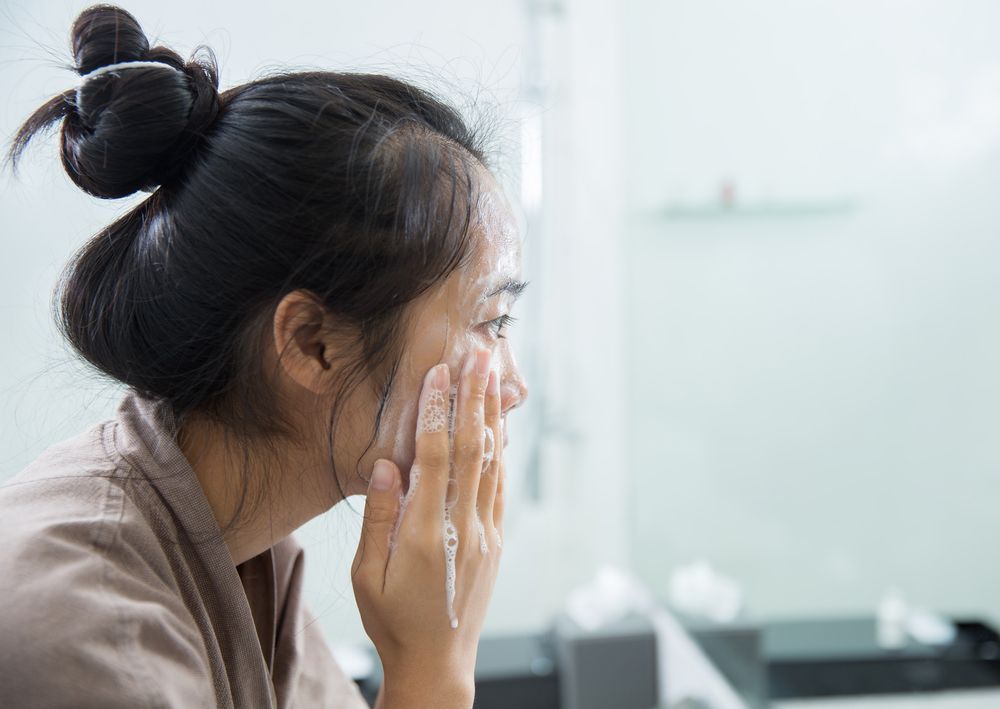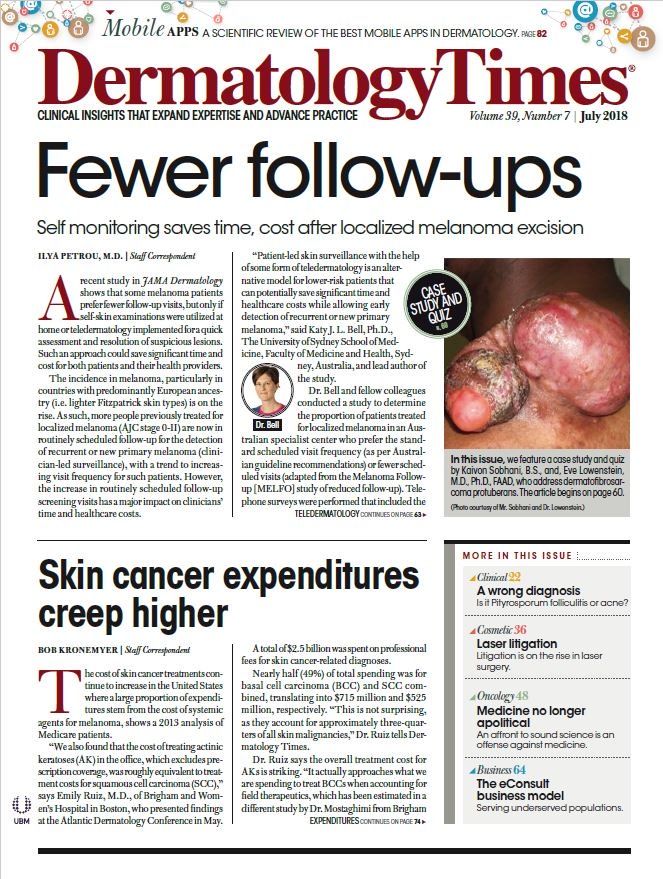- Acne
- Actinic Keratosis
- Aesthetics
- Alopecia
- Atopic Dermatitis
- Buy-and-Bill
- COVID-19
- Case-Based Roundtable
- Chronic Hand Eczema
- Chronic Spontaneous Urticaria
- Drug Watch
- Eczema
- General Dermatology
- Hidradenitis Suppurativa
- Melasma
- NP and PA
- Pediatric Dermatology
- Pigmentary Disorders
- Practice Management
- Precision Medicine and Biologics
- Prurigo Nodularis
- Psoriasis
- Psoriatic Arthritis
- Rare Disease
- Rosacea
- Skin Cancer
- Vitiligo
- Wound Care
Publication
Article
Dermatology Times
Skin care for sensitive and diseased skin
Author(s):
The skin care industry promotes products designed for sensitive skin, yet dermatologists are concerned about the use of skin care products for skin disease.
Face Wash (©TorwaistStudiosShutterstock.com)

Zoe Diana Draelos, M.D.

The skin care industry promotes products designed for sensitive skin, yet dermatologists are concerned about the use of skin care products for skin disease. Are sensitive skin products suitable for persons with skin disease? The answer is yes. Sensitive skin products that are dermatologist tested are evaluated in a panel of subjects that demonstrate sensitive skin attributes. These attributes include a defective skin barrier, enhanced immune reactivity, and increased neurosensory awareness. Since skin care products are about beauty, individual skin diseases are typically not mentioned, but a current trend in the crowded product offering arena is to single out products designed for diabetes or eczema or psoriasis patients. This is a huge step forward as this creates more awareness of these conditions.
A defective skin barrier, enhanced immune reactivity, and an increased neurosensory awareness translate into diseases that the dermatologist regularly treats. For example, eczema and atopic dermatitis are both characterized by a defective skin barrier. In addition, atopic dermatitis combines the barrier issues with enhanced immune reactivity. Rosacea is the classic disease where patients experience increased neurosensory awareness manifesting as stinging, burning, and itching. Sensitive skin panels are composed of persons with these diseases, which is why dermatologists can feel confident when recommending sensitive skin care products to subjects with skin disease.
WHAT CLEANSERS ARE GOOD FOR ATOPICS?
Since atopics have a defective skin barrier with staph aureus colonization, cleansing is particularly important event. The special cleanser formulations most appropriate for these skin needs are the nonfoaming cleansers (CeraVe Cleanser, L’Oreal; Cetaphil Gentle Cleanser, Galderma). Nonfoaming cleansers as the name implies do not foam and do not alkalinize the skin. In atopic dermatitis, the acid mantle is felt to be especially important in infection prevention and some moisturizers for atopics are formulated at a slightly acidic pH. Normal skin will regain its acid mantle even after exposure to an alkaline cleanser within 15-30 minutes, but it can take longer in atopic skin.
Nonfoaming cleansers also include mild surfactants with reduced ability to disrupt the intercellular lipids. This in turn reduces unwanted cleanser penetration from stratum corneum protein swelling. These cleansers can be used without water and simply wiped from the skin or water rinsed away. One new trend in cleansers for atopic dermatitis is the introduction of acidic low pH cleansers to decrease unwanted microbial growth. Another trend is the introduction of ceramides, triglycerides, cholesterol and free fatty acids, which are the constituents of the intercellular lipids, into cleanser formulations. While this might be beneficial, the cleanser contact time with the skin is short and must be thoroughly removed to prevent skin irritation.
WHAT FACIAL CLEANSERS MINIMIZE ROSACEA REDNESS?
Facial cleansers for rosacea are aimed at reducing noxious sensory stimuli, such as stinging, burning, and itching, associated with barrier damage and heightened neurosensory awareness.
Avoiding skin irritation is key to prevent rosacea flares and minimize facial erythema.
Nonfoaming cleansers and micellar water are appropriate formulations. Micellar water cleansers are made of water and a very mild dilute surfactant. A micelle is a molecular cluster with a hydrophilic and a hydrophobic end with the hydrophobic end attaching to oily skin soils and the hydrophilic end attaching to water to rinse the soils down the drain.

Newsletter
Like what you’re reading? Subscribe to Dermatology Times for weekly updates on therapies, innovations, and real-world practice tips.

























